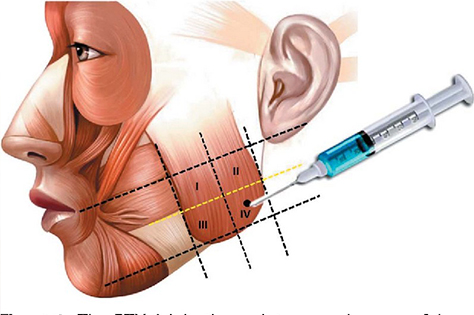What does Botox in the chin do?
Jaw botox reduces the activity of overgrown jaw muscles due to clenching, thinning the face and reducing pain in the jaw muscle.
Does chin botox thin the face?
The masseter muscle, which becomes visibly evident in some cases due to clenching or excessive activity, regresses to its former form with Botulinum toxin applications. This may result in a thinning of the lower part of the face.
Who does chin botox?
Jaw botox is applied by medical doctors and dentists. It should not be forgotten that the physician performing the procedure should have a good grasp of the facial anatomy and the working mechanism of the muscles.
How long does Masseter botox take?
The implementation of the procedure takes approximately 5 minutes. After the application, it is possible to return to working life. A control appointment is usually made two weeks after the procedure. The effect of the procedure is fully seen in 3-4 weeks.
When will the effect of Masseter botox wear off?
Botox applications lose their effect within 3 to 6 months. This period varies according to many factors. It is observed that the duration of effect of botox is prolonged after repetitive botox procedures. It can be said that the reason for this is that a muscle whose activation is constantly decreasing begins to forget about the contraction.
How often should chin botox be repeated?
Jaw botox starts to lose its effect in an average of 3 months. Repeating the injection during this period may not allow the muscle to strengthen again, and the effects may be observed for a longer period of time. However, the frequency of repetition of the procedure should still be determined in the control sessions.
Is there pain after chin botox?
After the chin botox procedure, pain is not expected as in other botox applications.
What should be considered after chin botox?
It is important not to massage the area for the first 24 hours after chin botox applications and not to lie face down. It is recommended that the person not consume hard foods and lean forward for the first few hours after the application.
Can chin botox be done for aesthetic purposes?
It is known that chin botox can cause thinning in the masseter muscle, that is, in the lower part of the face. For this reason, if it is suitable for individuals who want to have a more oval face or a prominent jaw line, masseter botox can be applied. Apart from this, masseter botox applications can be applied to eliminate asymmetries in the lower part of the face.
Is chewing function interrupted after chin botox?
Jaw botox is an application that is often used in cases where there is excessive activity of the chewing muscle to bring this activity to the average limits. Although a decrease in chewing force has been reported in a low group of patients who underwent botox application in studies, a situation that will interfere with chewing function is not expected.
What should be considered when getting chin botox?
Before Botox applications, all drugs used, if any, and the history of neurological disease, if any, should be reported to the physician. However, botox applications are not recommended during pregnancy and lactation. Botox is not applied to people with active dental infections.
How does chin botox work?
Botox prevents the transmission of the nerve impulse to the muscle. In this way, the muscle ceases to contract and the muscle begins to return to its original size as the overwork of the masseter muscle will decrease.
What are the side effects that can be seen in chin botox?
Botox has no known permanent effects. In rare cases, a temporary bruising and swelling may be observed in the case of capillaries.
Does chin botox affect the smile?
A change in smile is not expected after chin botox. However, as a rare complication, a temporary asymmetry can be observed in the smile muscles.

